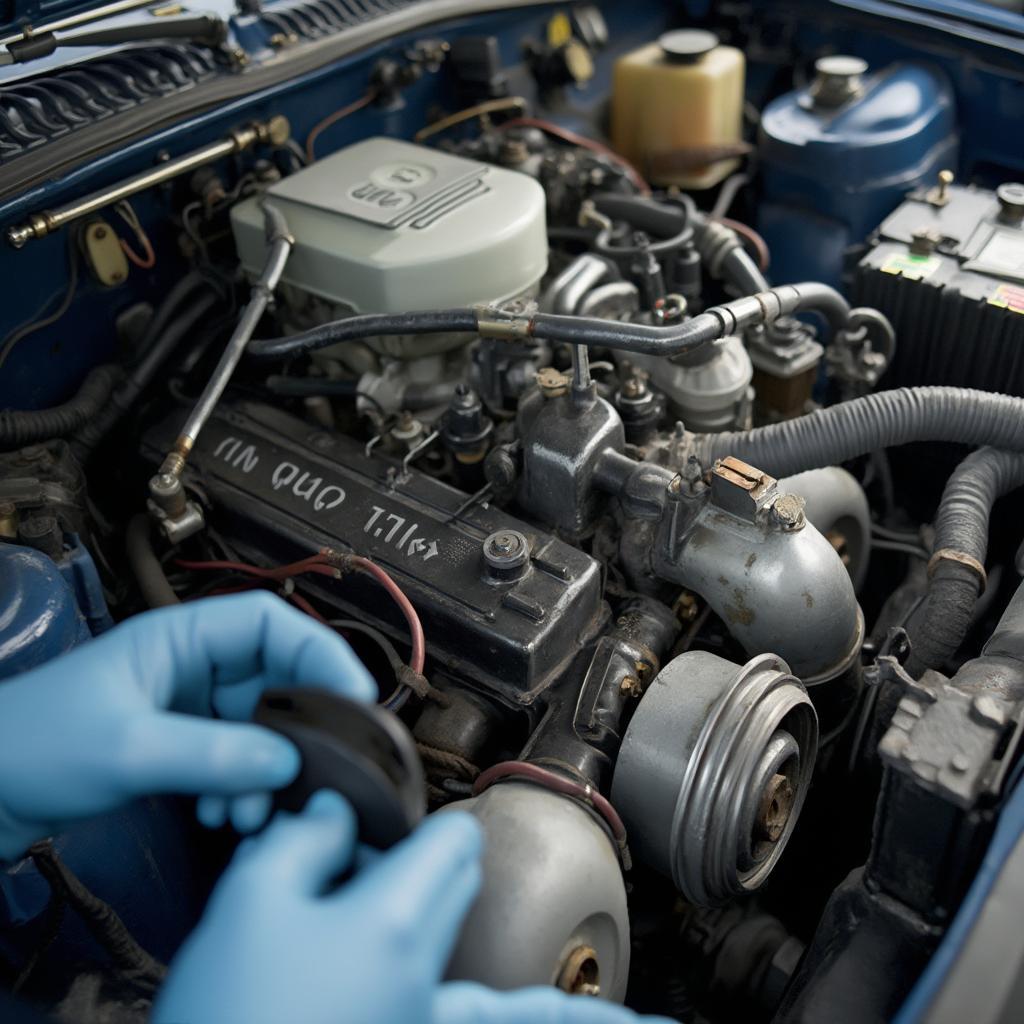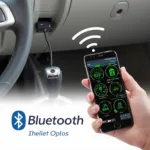OBD2 engine noise can be a frustrating and often confusing issue for car owners. This article will help you understand how your OBD2 scanner can be a valuable tool in diagnosing the source of unusual engine sounds, saving you time and money on potential repairs. We’ll cover everything from common causes to advanced diagnostic techniques. Let’s dive in!
Common Causes of OBD2 Engine Noise
Engine noises can range from a subtle ticking to a loud knocking. Understanding the type of noise and when it occurs is crucial for diagnosis. Is it a high-pitched whine that changes with engine RPM? A rhythmic tapping that gets faster as you accelerate? Your OBD2 scanner, while not directly listening to the noise, can provide valuable data related to the systems that often cause these noises. Check this article about obd1 harness in obd2 car.
Using Your OBD2 Scanner to Identify Potential Issues
While an OBD2 scanner won’t directly tell you what the noise is, it can point you in the right direction. By reading diagnostic trouble codes (DTCs), you can identify problems with systems that commonly contribute to engine noise. For example, a misfire code (such as P0300) can indicate a rough-running engine, which might be perceived as a knocking sound. Similarly, codes related to the variable valve timing (VVT) system can suggest a ticking noise. Knowing these codes gives you a starting point for further investigation.
Diagnosing OBD2 Engine Noise with Advanced Techniques
Beyond reading DTCs, some advanced OBD2 scanners offer live data streaming. This allows you to monitor various engine parameters in real-time, which can be incredibly helpful in diagnosing noise issues. For example, you can observe fuel pressure, oxygen sensor readings, and engine temperature while listening to the noise. This data can reveal subtle fluctuations or anomalies that might not trigger a DTC but could contribute to the unwanted sound. Would you like to know about best obd2 scanner for motorcycle?
Interpreting Live Data to Pinpoint the Source
Interpreting live data effectively requires some knowledge of engine operation. However, even basic understanding can be beneficial. For instance, if you notice erratic oxygen sensor readings coinciding with a knocking noise, it might point towards a lean fuel mixture. Similarly, if the engine temperature is abnormally high when the noise occurs, it could indicate a cooling system problem that’s indirectly affecting the engine’s acoustics.
When to Seek Professional Help
While an OBD2 scanner is a powerful tool, it’s not a replacement for professional expertise. If you’re unable to diagnose the engine noise after utilizing your scanner, it’s crucial to consult a qualified mechanic. They have the experience and specialized equipment necessary to perform more in-depth diagnostics and repairs. Check out obd2 code p2646.
Quote from John Davis, ASE Certified Master Technician: “An OBD2 scanner is like a flashlight in a dark room. It helps illuminate the problem, but it doesn’t always show you everything. Sometimes you need a professional to interpret the clues.”
Preventing Future OBD2 Engine Noise Issues
Regular maintenance is key to preventing many engine noise problems. Follow your vehicle’s recommended service schedule, use quality fluids and parts, and address any warning lights or codes promptly. This proactive approach can save you from costly repairs and headaches down the road. Have you ever encountered obd2 p0236?
 A close-up shot of a car engine being serviced, with a mechanic's hand changing the oil filter.
A close-up shot of a car engine being serviced, with a mechanic's hand changing the oil filter.
Conclusion
OBD2 engine noise can be a symptom of various underlying issues. While your OBD2 scanner can be a valuable tool in identifying the source, it’s essential to combine its data with careful listening, observation, and, if needed, professional expertise. By understanding the information your scanner provides, you can take proactive steps towards resolving the problem and keeping your car running smoothly. Don’t hesitate to seek professional help when necessary, as early diagnosis can prevent further damage and save you money in the long run. Consider checking obd2 fake engine noise.
FAQ
-
Can an OBD2 scanner directly tell me what engine noise I have? No, it can’t “hear” the noise. It provides data that can help you diagnose the underlying issue causing the noise.
-
What are some common DTCs associated with engine noise? Misfire codes (P0300-P0308), VVT codes, and oxygen sensor codes can all indirectly contribute to engine noise.
-
Is it always necessary to take my car to a mechanic for engine noise? Not always. An OBD2 scanner can sometimes help you identify simple fixes. However, complex issues often require professional assistance.
-
How can I prevent future engine noise problems? Regular maintenance, using quality fluids, and addressing warning lights promptly are key to prevention.
-
What does live data streaming on an OBD2 scanner show me? It shows real-time values of various engine parameters, which can help pinpoint subtle problems.
-
What if I don’t understand the data my OBD2 scanner is showing me? Consult a mechanic or online resources for further interpretation.
-
Can a cheap OBD2 scanner diagnose engine noise effectively? While basic scanners can read DTCs, more advanced features like live data streaming are often needed for comprehensive diagnostics.
Need support? Contact us via WhatsApp: +1(641)206-8880, Email: [email protected] or visit us at 789 Elm Street, San Francisco, CA 94102, USA. We have a 24/7 customer support team.
